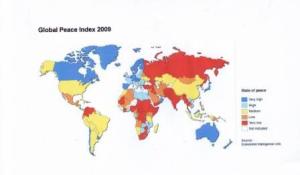Calf milk powder shortage dire – Neal Walllace:
Calf rearers battling a shortage of milk powder are unlikely to get a reprieve this season with a major retailer warning product delays could continue for another four weeks.
As if that wasn’t enough, farmers report the price of calf milk replacer, or what some are calling white gold, has increased in recent weeks from $53 for a 20kg bag to $75.
Farmlands chief executive Peter Reidie said his company was not taking any new orders for calf milk replacer (CMR) because suppliers had advised they could not supply any product. . .
World food trends favour dairy – Hugh Stringleman:
Fonterra has identified 11 modern consumer food trends it says are very positive for high quality milk production in New Zealand.
Global consumer and food service chief operating officer Jacqueline Chow said Fonterra had invested $1 billion over the past decade in dairy innovation – in science, sustainability, nutrition and packaging – to position the co-operative to meet the trends.
Its dairy farmers had also spent $1b over the past five years on environmental initiatives. . .
More calls to rural support line reported -:
The Waikato Rural Support Trust is receiving unusually high numbers of calls from farmers as adverse weather conditions and the low dairy payout take a toll, it says.
Trust chairman Neil Bateup said a particularly wet spring had caused issues with feed quality and quantity and that had made farming very difficult.
Mr Bateup said the farmers calling were mainly in the dairy industry, with those people also struggling with the low payout of the past couple of years. . .
Feral Activists Are Worse Than The Pests 1080 Fights:
Activism in New Zealand has sunk to a new low as conservation workers don’t even feel safe going about their daily jobs.
Federated Farmers is deeply concerned for the safety of the country’s conservation department staff and contractors, as so-called activists continue to ignore the fact that 1080 is working well for New Zealand.
“It is simply unacceptable for New Zealanders who go to work every day to protect our environment, to be made to feel unsafe doing their jobs,” says Federated Farmers president Dr William Rolleston.
“This is madness and it’s activism out of control. . .
Ngāi Tahu adds horse treks to its tourism stable – Aaron Smale:
Ngāi Tahu has bought a horse trekking business in Glenorchy to add to its tourism portfolio.
The South Island iwi has bought Dart Stables in Glenorchy, which runs horse treks through a region that features heavily in Peter Jackson’s Lord of the Rings film trilogy.
Ngāi Tahu Tourism chief executive Quinton Hall said the business fit well with its broader tourism strategy.
“The team at Dart Stables has an excellent reputation with customers and within the local community and has access to some of the most beautiful parts of the country,” he said. . .
Enterprising Rural Women Awards (ERWA) entrants for 2016:
Six fantastic businesses are competing in three categories this year and the ultimate winner will receive the supreme prize for the Enterprising Rural Women Awards.
Rural Women New Zealand’s annual awards showcase rural women who run their own successful businesses. For the entrants, it is an opportunity to promote their innovative rural enterprise and gain recognition for their contribution to their community.
Each category winner receives $1,000 in prize money and a trophy, with a further $1,000 being awarded to the supreme winner who is judged as an exceptional rural business women. Prizes also include clothing from Swazi Apparel and from the Agri-Women’s Development Trust $400 worth of executive coaching for each category winner and an additional $3,400 professional development package for the supreme winner.
2016 ERWA categories: . .
International Beef Alliance meets in Taupo:
New Zealand is hosting beef producers from the International Beef Alliance in Taupo this week.
The International Beef Alliance includes the national organisations representing beef cattle producers in Australia, Brazil, Canada, Mexico, New Zealand, Paraguay and the United States and it meets annually to progress issues of common interest.
This week the Presidents and CEOs from the Cattle Council of Australia, Associação dos Criadores de Mato Grosso, Associação Nacional dos Confinadores de Brasil, Canadian Cattlemen’s Association, Confederación Nacional de Organizaciones Ganaderas, Asociación Rural de Paraguay, Beef + Lamb New Zealand and the US National Cattlemen’s Beef Association will meet in Taupo. This group accounts for 46% of the world’s beef cattle production and 63% of global beef exports. . .
Helping farmers save time and take control:
With volatility in the dairy payout, there has never been a more important time to have a clear picture of your farming business’ performance.
And according to Figured’s marketing manager Monica Shepherd, nearly 40 per cent of farmers surveyed at the New Zealand National Fieldays, said they wanted more advice from their accountants on how to achieve just that.
In response, Dairy Women’s Network is running a free dairy module called ‘Farming in the Cloud’ with its partners Figured, Xero, ASB Bank and Crowe Horwath. . .
New Zealand’s Extra Virgin Olive Oil Awards – Top Honours Announced:
Winners in New Zealand’s most prestigious competition for olive oil were announced last night at a formal dinner held at Parliament in Wellington and hosted by MP Paul Foster-Bell.
Robinsons Bay Olives from Akaroa took out the 2016 Best in Show as well as Best in Class in the Commercial Medium Blends Class at the New Zealand Extra Virgin Olive Awards, run by Olives New Zealand, the national organisation for olive oil growers.
The Old N’Olive Grove Partnership from Wairarapa won the Best in Boutique Category for growers who produce less than 250 litres of certified extra virgin olive oil, as well as Best in Class in the Boutique Intense Single Varietal Class with their Rockbottom Grove Picual. . .

Thank ewe for supporting wool week.



 Posted by homepaddock
Posted by homepaddock 


